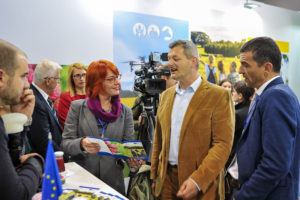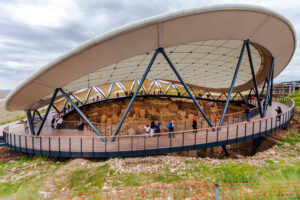
Capacity Building for the Alignment with the Acquis in the areas of Agriculture, Rural Development, Food Safety, Veterinary and Phytosanitary Policy
This project improves the planning, legislative, and institutional capacity of Serbia’s Ministry of Agriculture , Forestry and Water Management part of the country’s preparations for EU membership. Project supports Serbia in the EU accession process through the preparation of the Negotiation Positions and drafting or amending the national

Technical Assistance for Promoting Social Inclusion in Densely Roma Populated Areas
It’s an obvious fact that there is a need to increase social inclusion in heavily populated areas, particularly in Rome, mainly by facilitating their entrance into the formal labour market. Within this context, the project aimed to support Rome’s population by improving the quality of education delivery, vocational

Technical Assistance for Revitalisation of History in Şanlıurfa
While tourism has been, and continues to be, important to the local economy, it has not matched its potential. To remedy this and attract more tourists, local government and businesses in the city decided to ensure that the standard of services offered to visitors met internationally accepted standards

Support to Development of a Rural Business Information System in Azerbaijan
This project aims to support the development of a Rural Business Information System (RBIS) in Azerbaijan. The project aims to support rural development by increasing public authorities and other agricultural stakeholders’ capacity to collect and provide publicly available, current, and relevant market information and data related to Azerbaijan’s

Improvement of Legislation, Control and Awareness in Food Safety, Animal Health and Welfare in Ukraine
The project aims to support the implementation of the Association Agreement’s provisions between the EU and Ukraine concerning food safety, animal health, and welfare.

Support to the Solution of Economic and Social Integration Problems in İstanbul, İzmir, Ankara and Bursa as Major In-Migrant Destinations (İGEP)
Cities with high demographic density require reduced urban disparities through enhanced economic, social and cultural opportunities for all citizens. In this respect, the purpose of the project was to provide support to the municipalities of İstanbul, Ankara, İzmir and Bursa to increase institutional capacity to reduce socio-economic integration

